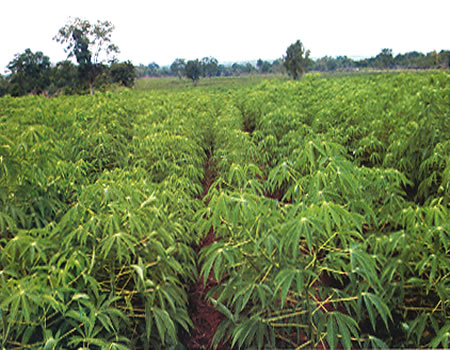The President Nigeria Cassava Growers Association (NCGA), Pastor Segun Adewuni has called for the establishment of Cassava Development Commission which he said will complement oil as the mainstay of Nigeria’s economy.
Adewumi stated this at the Agro-Commodity Roundtable Dialogue, Dinner and Recognition Night organised by the Federation of Agricultural Commodity Associations of Nigeria (FACAN).
He said the Commission would design a Cassava Development Agenda for the country, saying but it would require strong political will on the side of the federal government to accomplish that.
“We can consider the zeal with which Malaysia that took palm seeds from Nigeria transformed palm produce into an economic crop that generates more than twice what Nigeria earns from her oil.
“We can also consider how Ireland, net importer of dairy products, now export 90 percent of the dairy it produces. With this pattern of zeal backed by a strong political will, Cassava can be made the mainstay of the Nigerian economy”, he stated.
Adewumi said there had to be two programmes for cassava development.
He counselled that the country should separate the agenda for cassava for food security from that of cassava for industrial use.
Adewumi revealed that the cassava produced by the small holder farmers in Nigeria was the most expensive cassava in the world.
“For example, a tonne of cassava chips is sold for 200 dollars in China, but it costs the Nigerian farmer over 400 dollars to produce the same tonne. As it is in Nigeria, cassava cannot penetrate the world market because the practice of agriculture in Nigeria is still in the crude form.
“You may wish to know that some southern states that have a farming population of over 2million do not have up to ten (10) serviceable tractors for the use of their farmers. Besides, it is rare to find a contiguous tractorable farmland of 100 Ha anywhere in the southern states where cassava is the main crop.”
The NCGA president noted that until recent times, cassava was never seen as a cash crop by the average farmer, but was used for inter-cropping to support the food need of the family in the off season period of yam.
“From the over twenty mega factories that process cassava in Nigeria, I cannot see more than one that has over 60% regular cassava feed stock all the year round. Most of the other factories operate at less than 10% of their installed capacities. This is because the cassava supply issue was not properly addressed before the factories were established.
Speaking on youth involvement in agriculture, Pastor Adewunmi said the practice of agriculture across the world today was driven by technology that was beyond the understanding of the aging farming population.
He said the youth, especially the educated ones, must be mobilised to embrace modern farming techniques, adding that cassava programme could be the pace setter for other agricultural commodities.
The farmer said in order to boost youth’s interest in agriculture “farming must be made attractive in such a way that the youth can take up agriculture as a career where they can generate wealth in accordance with their desire and ability.
“For example, if a youth farmer successfully cultivates a 10 Ha farm, he should be given additional 5 Ha yearly until he has 25 Ha after which he will be strong enough to go for mega farm.
“The proposal is for the establishment of cassava cultivation project within the vicinity of the processing factories. We shall allocate 10 Ha cassava farm to each of the participants. The youth farmers will be grouped under extension officers who will facilitate to them, inputs and services required for successful cultivation.
“Participants will be given a monthly allowance, the total sum of which will be deducted from the proceeds of the sales of their proceeds at harvest. Cultivation will be arranged to meet the pattern of usage of cassava by the factory targeted as offtakers”.
